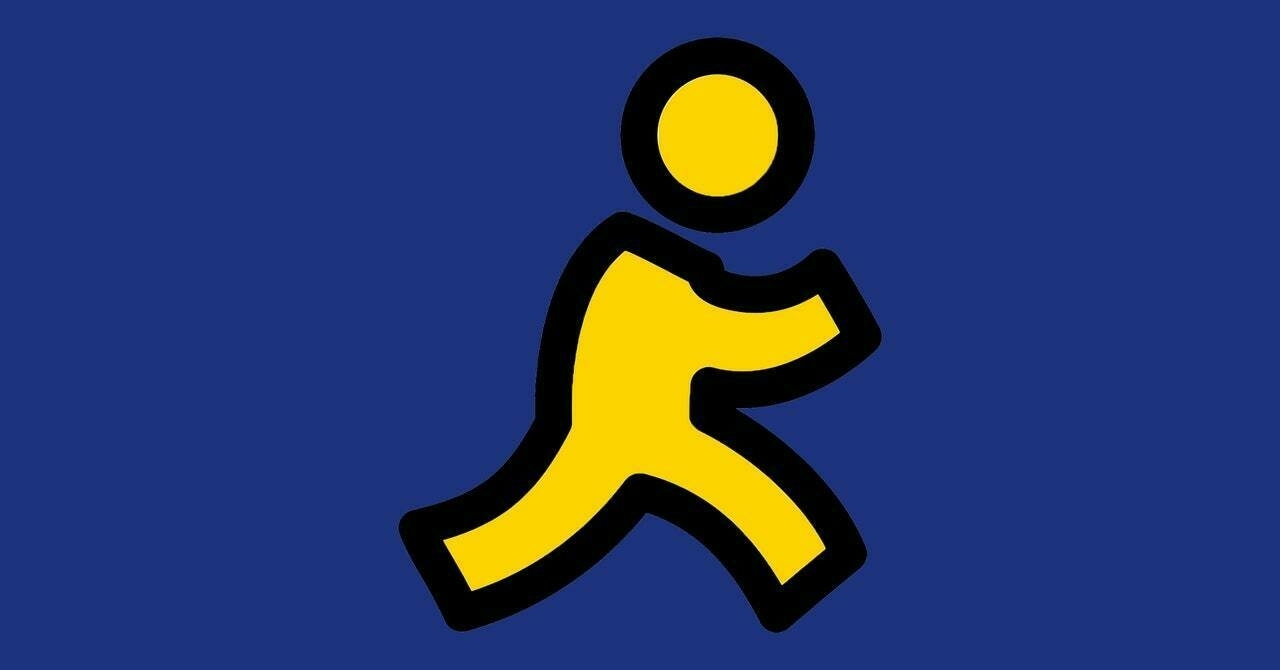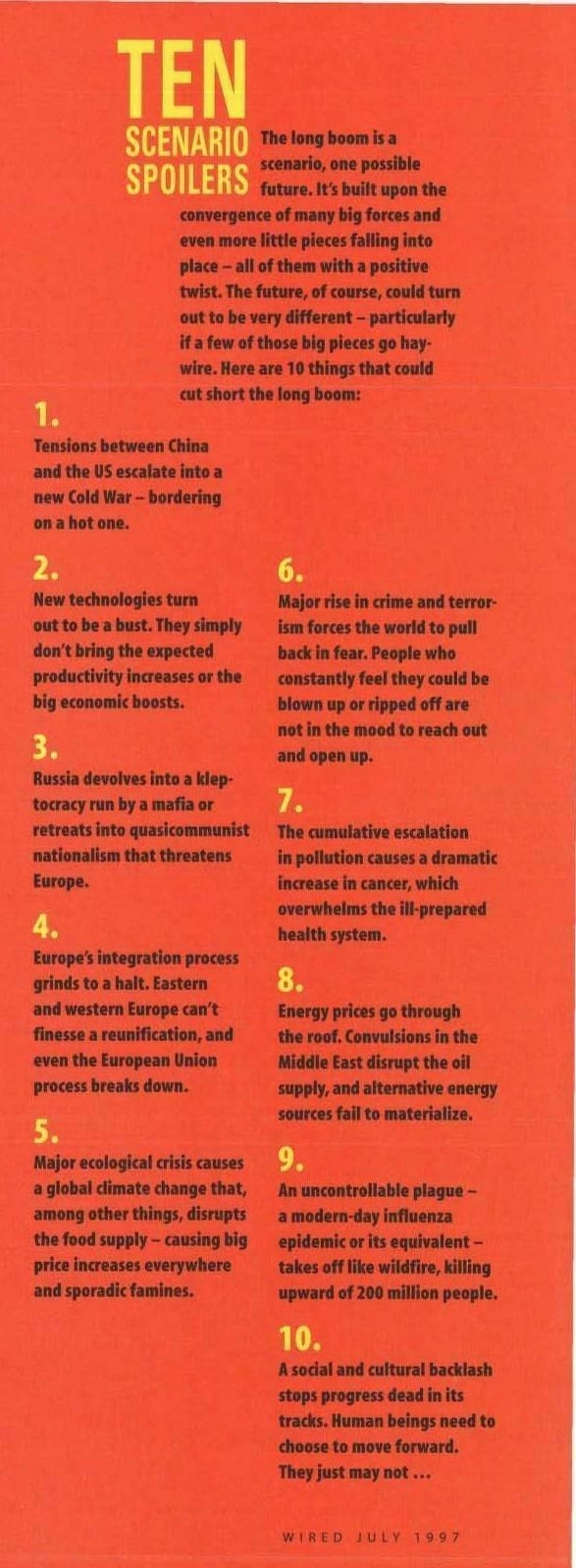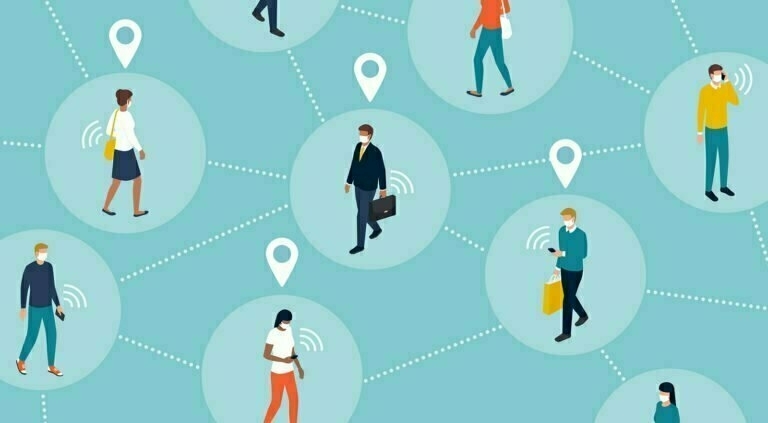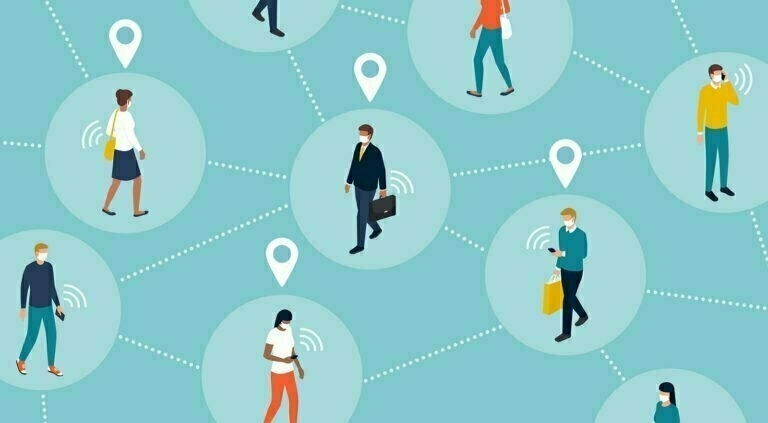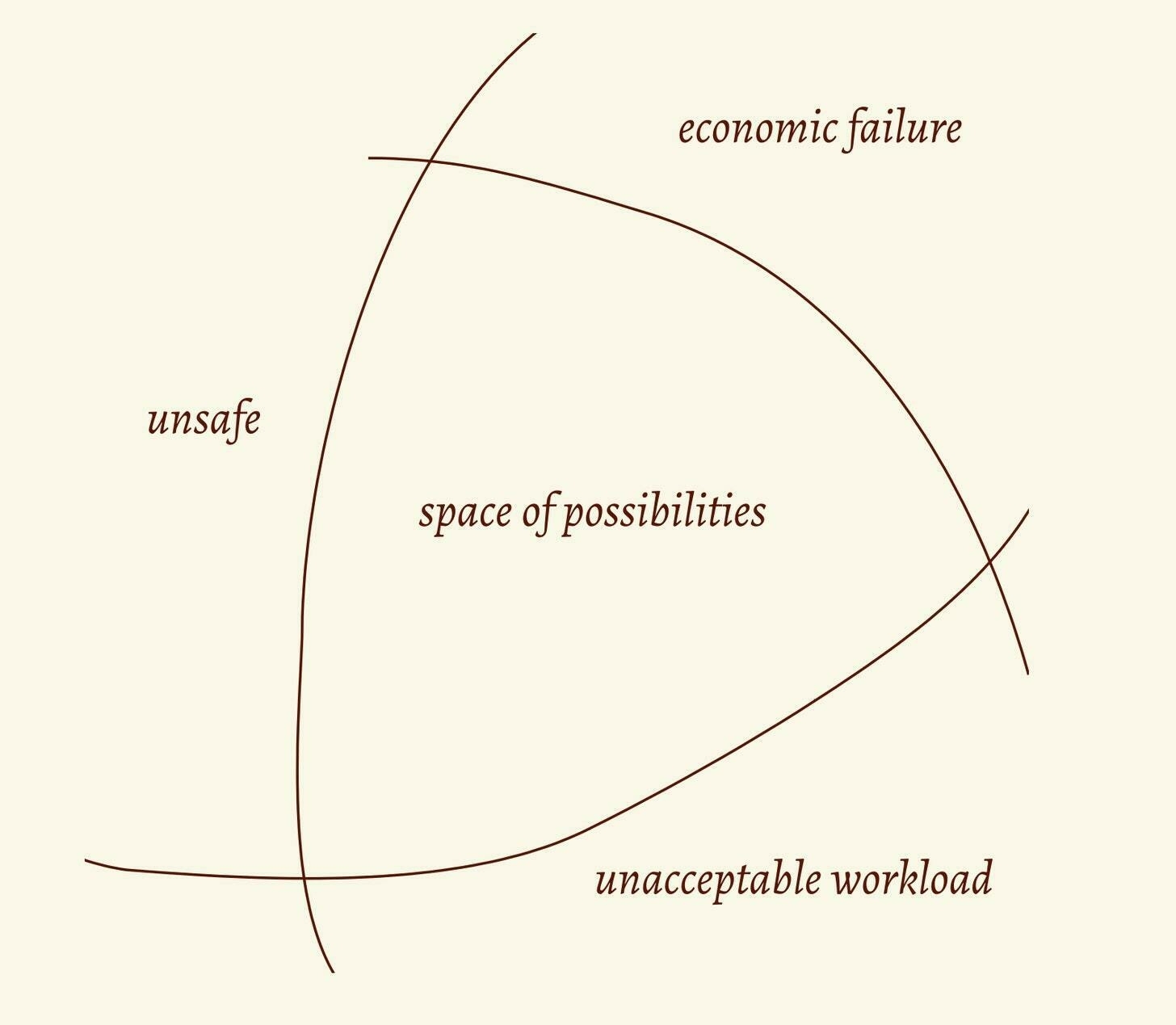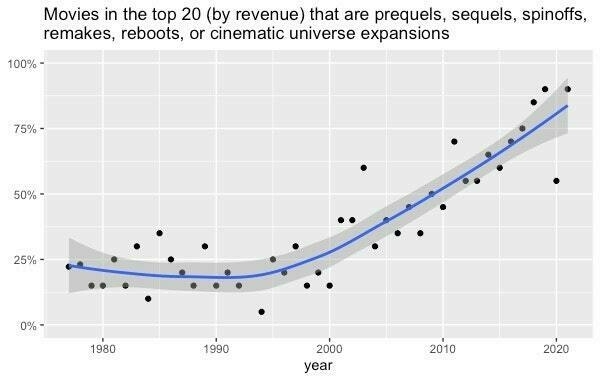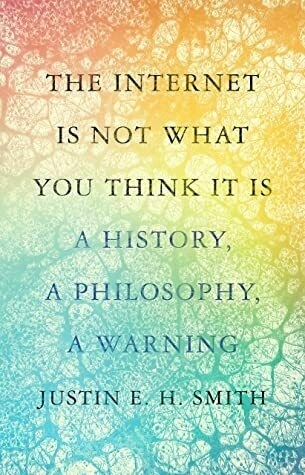2022
- The cult of tradition. “One has only to look at the syllabus of every fascist movement to find the major traditionalist thinkers. The Nazi gnosis was nourished by traditionalist, syncretistic, occult elements.”
- The rejection of modernism. “The Enlightenment, the Age of Reason, is seen as the beginning of modern depravity. In this sense Ur-Fascism can be defined as irrationalism.”
- The cult of action for action’s sake. “Action being beautiful in itself, it must be taken before, or without, any previous reflection. Thinking is a form of emasculation.”
- Disagreement is treason. “The critical spirit makes distinctions, and to distinguish is a sign of modernism. In modern culture the scientific community praises disagreement as a way to improve knowledge.”
- Fear of difference. “The first appeal of a fascist or prematurely fascist movement is an appeal against the intruders. Thus Ur-Fascism is racist by definition.”
- Appeal to social frustration. “One of the most typical features of the historical fascism was the appeal to a frustrated middle class, a class suffering from an economic crisis or feelings of political humiliation, and frightened by the pressure of lower social groups.”
- The obsession with a plot. “Thus at the root of the Ur-Fascist psychology there is the obsession with a plot, possibly an international one. The followers must feel besieged.”
- The enemy is both strong and weak. “By a continuous shifting of rhetorical focus, the enemies are at the same time too strong and too weak.”
- Pacifism is trafficking with the enemy. “For Ur-Fascism there is no struggle for life but, rather, life is lived for struggle.”
- Contempt for the weak. “Elitism is a typical aspect of any reactionary ideology.”
- Everybody is educated to become a hero. “In Ur-Fascist ideology, heroism is the norm. This cult of heroism is strictly linked with the cult of death.”
- Machismo and weaponry. “Machismo implies both disdain for women and intolerance and condemnation of nonstandard sexual habits, from chastity to homosexuality.”
- Selective populism. “There is in our future a TV or Internet populism, in which the emotional response of a selected group of citizens can be presented and accepted as the Voice of the People.”
- Ur-Fascism speaks Newspeak. “All the Nazi or Fascist schoolbooks made use of an impoverished vocabulary, and an elementary syntax, in order to limit the instruments for complex and critical reasoning.”
- Those arriving inevitably compare five year-old, federated, open-source software developed mainly by two people with a fifteen year-old publicly-traded company. The fact that they're even comparable is frankly amazing, if you think about the money poured into Twitter over the years.
- Some people already on the Fediverse seem to think they have to act differently and/or take time to explain all of the things to people arriving from Twitter. I'm not sure that's necessary. People learn by watching, imitating, and practising.
- There's plenty of people (including me, I guess, to some extent) who are keen to point out that they've been around on the Fediverse for quite a while, thank you very much.
Billable hours and the psychology of work
I have to say that tracking my time is the worst thing about consulting rather than being employed. I don’t feel the urge to work at all hours of the day, but I resent ‘accounting’ financially for my time.
It is tempting to offer some typology of different professions and their attitudes to time. Yet I suspect the types are beginning to blur. In 1992, the economist Peter Sassone coined the phrase “the law of diminishing specialisation”. Thirty years later, it is astonishing how much knowledge work is handled using the same tools and workflow — a workflow that increasingly involves no fixed hours and no fixed location. We are all, like the lawyers, able to do a little bit of extra work before bedtime, even if not all of us can charge £1,000 an hour for it.Source: The billable hour is a trap into which more and more of us are falling | Tim HarfordAnd while the “billable hour” can be a psychological trap, it does teach us one valuable lesson: there is a distinction between working and not working. It’s a distinction worth sustaining.
Signalling that you're AFK in a world where you can never really be AFK
I used AIM and MSN Messenger as a teenager, from around 1996 to about 2001. It was great, and I remember messaging with friends and the woman who is now my wife using it.
Part of the whole experience of it was that you were using the service on a shared device, a computer that the rest of the family would use. In that sense, it was more like a text-based landline phone. It wasn’t personal like the smart devices that live in our pockets these days.
There a lot of nostalgia about how things used to be, and we’re certainly not going back to shared devices as a primary means of getting online anytime soon. So that means that we need other ways of respecting one another’s boundaries. This is something we can actually reclaim ourselves by responding to messages on our own terms.
Sometimes you had to step away. So you threw up an Away Message: I’m not here. I’m in class/at the game/my dad needs to use the comp. I’ve left you with an emo quote that demonstrates how deep I am. Or, here’s a song lyric that signals I am so over you. Never mind that my Away Message is aimed at you.Source: It's Time to Bring Back the AIM Away Message | WIREDI miss Away Messages. This nostalgia is layered in abstraction; I probably miss the newness of the internet of the 1990s, and I also miss just being … away. But this is about Away Messages themselves—the bits of code that constructed Maginot Lines around our availability. An Away Message was a text box full of possibilities, a mini-MySpace profile or a Facebook status update years before either existed. It was also a boundary: An Away Message not only popped up as a response after someone IM’d you, it was wholly visible to that person b they IM’d you.
Nothing like this exists in our modern messaging apps.
[…]
People send too many messages. I send too many messages. The first step in making messaging amends is to admit that you, too, are an inconsiderate messaging maniac.
But I’ll never stop, and neither will you. Quick messaging is a utility. It is, in many cases, the most efficient and meaningful form of communication we have. It’s crucial for relationship building, for organizing, for supporting others through hard times. It can be joyful.
[…]
Would something like the Away Message, a relic from an era when we just didn’t message so darn much, actually put up the guardrails we need? Maybe not. But I’m willing to try anything at this point. If we can’t ever get away from messages, at the very least we can create a digital simulacrum of ourselves that appears to be away. What else is the internet for?
The mesmerising murmurations of Europe’s starlings
Incredible. I highly recommend clicking through to watch the videos!
How the birds move together in such close proximity, as though one organism, is another mystery. One study found that each starling was responding instantly to the six or seven birds closest to it to maintain group cohesion.Source: ‘A fragment of eternity’: the mesmerising murmurations of Europe’s starlings | The Guardian
WIRED magazine predicts the 21st century... in 1997
This is from WIRED magazine in 1997 where authors Peter Schwartz and Peter Leyden suggest ten scenarios that could play out in the 21st century. On the one hand, this feels eerily prescient given our current world. On the other hand, perhaps the writing has been on the wall for quite a while.
We’re recording an episode of the Tao of WAO podcast tomorrow with futurist Bryan Alexander, who pretty much predicted the pandemic in his book Academia Next. I wonder what his thoughts are on this?
Updating our worldviews
I’m reading a book which deals with the Protestant Reformation at the moment. I think for anyone who knows some history, there have been times which have truly been unprecedented; things have changed so quickly that people haven’t been able to keep up.
We’re living during a slow, but accelerating, car crash. We do need to update our mental models, for sure. But collectively, and most important at levels which are going to have an impact. Let’s not forget that just 100 companies are responsible for 71% of global emissions.
Those of us with active minds are constantly gardening our worldviews. We adjust our perspectives as events around us unfold, as age and experience inform our received wisdom, as we learn new facts — and as cultural change around us pushes us to think differently. Even in extremely stable and slow-changing societies, there are always some people doing this gardeningSource: Old thinking will break your brain. | Alex SteffenBut this is not a stable society, and today gardening is not enough.
We grew up in societies built upon certain assumptions about how the world works, and how the planet around us should be seen. We now know those assumptions were wrong in profound ways, and in one human lifetime we have altered the climate and biosphere, squandered vast natural riches and destabilized a myriad of systems we depend on. We have made the circumstances of our lives discontinuous with everything that came before us. The societies we live in are now catastrophically unsuited for the planet we’ve made. Yet we still see the planet around us with worldviews formed inside of those societies.
[…]
Seeing with fresh eyes is something we can learn to do. It offers real advantages. At very least, an updated worldview means being able to stand in the surf and face the ocean, to see the waves rolling in, giving us a better shot at not getting plowed and dragged when the next sleeper wave suddenly surges up and hits us.
[…]
Right now, rebuilding our worldviews involves a lot of labor-intensive personal exploration. Being native to now demands finding insight, not just receiving it. It demands teaching ourselves how to learn new things, when both the course of our study and the lessons to be absorbed are complex and constantly evolving. This is a real challenge when we have such busy lives. A lot of people will decide to worry about it later.
[…]
The greatest danger in any work that asks you to think systemically about the future is getting locked into the worldview that made sense to you when you first began, that you built your successful career on.
We all have limited time and energy. Building up an insightful mental model of how the world works takes a lot of both. The pay-off is in the profit and sense of purpose gained from one’s expertise. It is very common, when you’re highly rewarded for a given set of working insights, to commit more to those insights as your career unfolds, to begin even to defend those insights from challenging new perspectives (ones you fear might devalue your intellectual stock in trade). This “sunk-cost expertise” can easily become a set of shackles.
[…]
All this is to say that the very process of worldview-building is undergoing an unprecedented shift. The planetary crisis is swallowing the world we thought we knew, whole, in one great gulp.
Developing your own style (and archive)
I like the way that Warren Ellis works out loud. I’ve read some great books because of this, and learned a lot about developing your own style.
I no longer look at traffic stats. I know what it is. That’s not what this site is for. This is a space for achieving personal goals: I’m using it to get thoughts out in front of me where I can see them properly, and if you’re here with me reading over my shoulder, I’m happy with that.Source: LTD Development | WARREN ELLIS LTD[…]
[T]his place should be a repository of all the things that interest me and teach me, under the general rubric of storytelling, culture and knowledge work. That’s the focus. This is a tool. That means, among other things, that I need to get better at deep linking back into the archive of the site. This is one thing that social media trained us out of. If you’ve been around a while, tumblelogs kind of did that to us too.
[…]
Modifier: “evolving the tools” becomes its own rabbit hole. Just learn the habit of putting stuff where you can fucking find it later, Warren.
Should governments track supermarket purchases?
We booked a holiday to France this week and used Tesco vouchers to pay for the Eurotunnel crossing. These Tesco vouchers are a kind of payment-in-kind for the data they gather (and presumably sell) about our grocery purchases.
I use both Google Pay and Garmin Pay so that I don’t have to take a wallet with me everywhere. It’s convenient, but these two tech companies — as well as my bank — know a lot about my purchasing habits.
So, from that point of view, it seems odd to wring our hands about the State knowing more about grocery purchases. But the point, I guess, is that in this case there’s no way to escape it, no opt-out.
Statistics Norway (SSB) is the state-owned entity responsible for collecting, producing and communicating statistics related to the economy, population and society at national, regional and local levels.Source: Norway to Track All Supermarket Purchases | Life in NorwayBecause everything about an individual living in Norway is linked to their fødselnummer (birth number), SSB already knows where you live, what you earn and what’s on your criminal record.
However, according to a report by NRK, they now want to know where you shop, and what you buy.
SSB has ordered Norway’s major supermarket chains NorgesGruppen, Coop, Bunnpris and Rema 1000 to share all their receipt data with the agency. Nets, the payment processor that is responsible for 80% of transactions, will also need to provide data.
[…]
SSB claims they want a less time-consuming way of collecting and analysing household consumption statistics in order to inform tax policy, social assistance and child allowance.
[…]
SSB is adamant that they are only concerned with statistics at a group level: “When the purchases are linked to a household, it will be possible in the consumption statistics to analyze socio-economic and regional differences in consumption, and link it to variables such as income, education and place of residence.”
Should governments track supermarket purchases?
We booked a holiday to France this week and used Tesco vouchers to pay for the Eurotunnel crossing. These Tesco vouchers are a kind of payment-in-kind for the data they gather (and presumably sell) about our grocery purchases.
I use both Google Pay and Garmin Pay so that I don’t have to take a wallet with me everywhere. It’s convenient, but these two tech companies — as well as my bank — know a lot about my purchasing habits.
So, from that point of view, it seems odd to wring our hands about the State knowing more about grocery purchases. But the point, I guess, is that in this case there’s no way to escape it, no opt-out.
Statistics Norway (SSB) is the state-owned entity responsible for collecting, producing and communicating statistics related to the economy, population and society at national, regional and local levels.Source: Norway to Track All Supermarket Purchases | Life in NorwayBecause everything about an individual living in Norway is linked to their fødselnummer (birth number), SSB already knows where you live, what you earn and what’s on your criminal record.
However, according to a report by NRK, they now want to know where you shop, and what you buy.
SSB has ordered Norway’s major supermarket chains NorgesGruppen, Coop, Bunnpris and Rema 1000 to share all their receipt data with the agency. Nets, the payment processor that is responsible for 80% of transactions, will also need to provide data.
[…]
SSB claims they want a less time-consuming way of collecting and analysing household consumption statistics in order to inform tax policy, social assistance and child allowance.
[…]
SSB is adamant that they are only concerned with statistics at a group level: “When the purchases are linked to a household, it will be possible in the consumption statistics to analyze socio-economic and regional differences in consumption, and link it to variables such as income, education and place of residence.”
Distro-hopping like a cynic
My own Linux journey has gone from Red Hat Linux, to Ubuntu, to Pop!_OS. However, today I’ve been messing about with Fedora Silverblue. I’m actually typing this on ChromeOS, which of course is also Linux.
What I like about The Register is their snarky, sarcastic style, which they put to good use in this article.
It is a truth universally acknowledged that all operating systems suck. Some just suck less than others.Source: The cynic’s guide to desktop Linux | The RegisterIt is also a comment under pretty much every Reg article on Linux that there are too many to choose from and that it’s impossible to know which one to try. So we thought we’d simplify things for you by listing how and in which ways the different options suck.
Distro-hopping like a cynic
My own Linux journey has gone from Red Hat Linux, to Ubuntu, to Pop!_OS. However, today I’ve been messing about with Fedora Silverblue. I’m actually typing this on ChromeOS, which of course is also Linux.
What I like about The Register is their snarky, sarcastic style, which they put to good use in this article.
It is a truth universally acknowledged that all operating systems suck. Some just suck less than others.Source: The cynic’s guide to desktop Linux | The RegisterIt is also a comment under pretty much every Reg article on Linux that there are too many to choose from and that it’s impossible to know which one to try. So we thought we’d simplify things for you by listing how and in which ways the different options suck.
#AbolishTheMonarchy
It’s Jubilee weekend in the UK, not that I’m celebrating. Someone re-shared this classic article in The Irish Times from last year which expresses just the entire ridiculousness of venerating a talentless inbred family.
Source: Harry and Meghan: The union of two great houses, the Windsors and the Celebrities, is complete | The Irish TimesThe contemporary royals have no real power. They serve entirely to enshrine classism in the British nonconstitution. They live in high luxury and low autonomy, cosplaying as their ancestors, and are the subject of constant psychosocial projection from people mourning the loss of empire. They’re basically a Rorschach test that the tabloids hold up in order to gauge what level of hysterical batshittery their readers are capable of at any moment in time.
Epic UK walking trails
After walking Hadrian’s Wall (84 miles, 72 hours) a couple of months ago, I’m now seriously considering walking The Pennine Way (268 miles) next year. I reckon it might take a couple of weeks, as I absolutely beasted myself to do Hadrian’s Wall so quickly.
If you can’t spare a week to walk Britain’s mountain trails, coastal tracks and riverside paths, head for these expert-picked highlightsSource: The best of the UK’s most epic walking trails in 2-3 days | The Guardian
Epic UK walking trails
After walking Hadrian’s Wall (84 miles, 72 hours) a couple of months ago, I’m now seriously considering walking The Pennine Way (268 miles) next year. I reckon it might take a couple of weeks, as I absolutely beasted myself to do Hadrian’s Wall so quickly.
If you can’t spare a week to walk Britain’s mountain trails, coastal tracks and riverside paths, head for these expert-picked highlightsSource: The best of the UK’s most epic walking trails in 2-3 days | The Guardian
Space of possibilities
In Andrew Curry’s latest missive, his ‘two things’ are Climate and Business. The diagram below is actually from the latter section, but I think it’s actually also very relevant for the former.
At his Roblog blog, Rob Miller has a short and engaging post on why businesses fail over time. I’m not sure it’s right, but it’s certainly interesting, and he tells the story through three diagrams.Source: 4 May 2022. Climate | Business - Just Two ThingsHe argues—following the work of Jens Rasmussen—that successful businesses operate in a safe space that sits between economic failure, on one side, lack of safety, on another, and overload, on a third.
Popular culture has become an endless parade of sequels
Once you start recognising colour schemes and sound effects, every new film ends up looking and sounding the same.
Yes, I’m getting old, but as Adam Mastroianni from Experimental History explains, there’s shifts happening in everything from books to video games.
The problem isn’t that the mean has decreased. It’s that the variance has shrunk. Movies, TV, music, books, and video games should expand our consciousness, jumpstart our imaginations, and introduce us to new worlds and stories and feelings. They should alienate us sometimes, or make us mad, or make us think. But they can’t do any of that if they only feed us sequels and spinoffs. It’s like eating macaroni and cheese every single night forever: it may be comfortable, but eventually you’re going to get scurvy.Source: Pop Culture Has Become an Oligopoly | Experimental History[…]
Fortunately, there’s a cure for our cultural anemia. While the top of the charts has been oligopolized, the bottom remains a vibrant anarchy. There are weird books and funky movies and bangers from across the sea. Two of the most interesting video games of the past decade put you in the role of an immigration officer and an insurance claims adjuster. Every strange thing, wonderful and terrible, is available to you, but they’ll die out if you don’t nourish them with your attention. Finding them takes some foraging and digging, and then you’ll have to stomach some very odd, unfamiliar flavors. That’s good. Learning to like unfamiliar things is one of the noblest human pursuits; it builds our empathy for unfamiliar people. And it kindles that delicate, precious fire inside us––without it, we might as well be algorithms. Humankind does not live on bread alone, nor can our spirits long survive on a diet of reruns.
The Climate Game
The Financial Times has a free-to-play game where the aim is to try and keep global warming to only 1.5°C by the year 2100. There are different things to choose from and decisions to make.
I only managed to keep it to 1.88°C and still had to make some pretty drastic decisions. We’re utterly screwed. We need to act on the climate crisis, but also start adapting too.
(also worth looking at the article on how they made this)
See if you can save the planet from the worst effects of climate changeSource: The Climate Game — Can you reach net zero? | Financial Times
14 Common Features of Fascism
This is from six years ago but it’s worth revisiting as I don’t think it’s too much of a push to see these elements at play in the USA right now. Which, if you think about the role that country played up until recently, is staggering.
Fascism and authoritarianism change over time, however, and so it’s worth also listening to a recent episode of the BBC Radio 4 Thinking Allowed programme on ‘Strongmen’. For example, instead of banning elections, fascists/authoritarian allow the democratic veneer to remain, they just ensure that the result goes they way they want.
While Eco is firm in claiming “There was only one Nazism,” he says, “the fascist game can be played in many forms, and the name of the game does not change.” Eco reduces the qualities of what he calls “Ur-Fascism, or Eternal Fascism” down to 14 “typical” features. “These features,” writes the novelist and semiotician, “cannot be organized into a system; many of them contradict each other, and are also typical of other kinds of despotism or fanaticism. But it is enough that one of them be present to allow fascism to coagulate around it.”Source: Umberto Eco Makes a List of the 14 Common Features of Fascism | Open Culture
Are we really calling it #Elongate?
There’s been a noticeable influx of people to the Fediverse over the last few days due to Elon Musk’s acquisition of Twitter.
What I find really interesting are three things:
“Funnily enough one of the reasons I started looking into the decentralized social media space in 2016, which ultimately led me to go on to create Mastodon, were rumours that Twitter, the platform I’d been a daily user of for years at that point, might get sold to another controversial billionaire,” he wrote. “Among, of course, other reasons such as all the terrible product decisions Twitter had been making at that time. And now, it has finally come to pass, and for the same reasons masses of people are coming to Mastodon.”Source: After Musk's Twitter takeover, an open-source alternative is 'exploding' | Engadget
Dedicated portable digital media players and central listening devices
I listen to music. A lot. In fact, I’m listening while I write this (Busker Flow by Kofi Stone). This absolutely rinses my phone battery unless it’s plugged in, or if I’m playing via one of the smart speakers in every room of our house.
I’ve considered buying a dedicated digital media player, specifically one of the Sony Walkman series. But even the reasonably-priced ones are almost the cost of a smartphone and, well, I carry my phone everywhere.
It’s interesting, therefore, to see Warren Ellis' newsletter shoutout being responded to by Marc Weidenbaum. It seems they both have dedicated ‘music’ screens on their smartphones. Personally, I use an Android launcher that makes that impracticle. Also, I tend to switch between only four apps: Spotify (I’ve been a paid subscriber for 13 years now), Auxio (for MP3s), BBC Sounds (for radio/podcasts), and AntennaPod (for other podcasts). I don’t use ‘widgets’ other than the player in the notifications bar, if that counts.
Highlights from 'The Internet Is Not What You Think It Is'
On my flight back from Croatia at the weekend, I managed to read the entirety of The Internet Is Not What You Think It Is: A History, A Philosophy, A Warning by Justin E.H. Smith. To be honest, the book itself is not what you think it is, as Sam Kriss notes in his (equally good) review.
I have a background in Philosophy which might have helped with this book, as it delves into the history of ideas quite a bit. Although he outlines four 'charges' against the internet, the main thesis that I understand Smith as postulating is that the internet, and in particular the culture around it, shouldn't be seen as a revolutionary break with what has gone before.
To my mind, Smith makes some good arguments, although he gets too bogged-down with Leibniz for my liking. But in general, I like the book and gave it 4.5 stars out of five on Literal.club. What follows are some of my favourite sections of the book, which I'd encourage you to read.
As the quotations I'm using are fairly lengthy, I'll introduce each one. In this first one, Smith talks about his phenomenological approach which focuses on actual usage of terms.
It seems reasonable terminologically to follow actual usage, and it seems conceptually justified to focus on the small corner of the internet that is phenomenologically most salient to human life, just as when we speak of “life on earth” we often have humans and animals foremost in mind, even though all the plant life on earth weighs over two hundred times more than all the animals combined, in terms of total biomass. Animals are a tiny sliver of life on earth, yet they are preeminently what we mean when we talk about life on earth; social media are a tiny sliver of the internet, yet they are what we mean when we speak of the internet, as they are where the life is on the internet. (Thus, “internet” serves as a sort of reverse synecdoche, the larger containing term standing for the smaller contained term. The reason for adopting this terminology is that it seems to agree with actual usage among current English speakers; on Twitter, for example, you will often see users declaring exasperatedly that their antagonists need to “get off the internet” and “touch grass.” Here, they don’t really mean the whole internet; they mean Twitter. (p.17)
The four charges that Smith makes are that the internet is addictive, that it shapes human life algorithmically, that there is no democratic oversight of social media, and that it works as a universal surveillance device.
The principal charges against the internet, deserving of our attention here, instead have to do with the ways in which it has limited our potential and our capacity for thriving, the ways in which it has distorted our nature and fettered us. Let us enumerate them. First, the internet is addictive and is thus incompatible with our freedom, conceived as the power to cultivate meaningful lives and future-oriented projects in which our long-term, higher-order desires guide our actions, rather than our short-term, first-order desires. Second, the internet runs on algorithms, and shapes human lives algorithmically, and human lives under the pressure of algorithms are not enhanced, but rather warped and impoverished. To the extent that we are made to conform to them, we experience a curtailment of our freedom. Third, there is little or no democratic oversight regarding how social media work, even though their function in society has developed into something far more like a public utility, such as running water, than like a typical private service, such as dry cleaning. Private companies have thus moved in to take care of basic functions necessary for civil society, but without assuming any real responsibility to society. This, too, is a diminution of the political freedom of citizens of democracy, understood as the power to contribute to decisions concerning our social life and collective well-being. What Michael Walzer said of socialism might be said of democracy too: that “what touches all should be decided by all.” And on this reckoning, the internet is aggressively undemocratic. Fourth, the internet is now a universal surveillance device, and for this reason as well it is incompatible with the preservation of our political freedom. (p.18-19)
Smith goes on to explain the impact of each of these and starts to talk about how the problems interact with one another.
This then is the first thing that is truly new about the present era: a new sort of exploitation, in which human beings are not only exploited in the use of their labor for extraction of natural resources; rather, their lives are themselves the resource, and they are exploited in its extraction.
[...]
This then is the second new problem of the internet era: the way in which the emerging extractive economy threatens our ability to use our mental faculty of attention in a way that is conducive to human thriving. Both the first and second problems are aggravated significantly with the rise of the mobile internet, and what Citton astutely labels “affective condensation.” Most of our passions and frustrations, personal bonds and enmities, responsibilities and addictions, are now concentrated into our digital screens, along with our mundane work and daily errands, our bill-paying and our income tax spreadsheets. It is not just that we have a device that is capable of doing several things, but that this device has largely swallowed up many of the things we used to do and transformed these things into various instances of that device’s universal imposition of itself: utility has crossed over into compulsoriness.
[...]
This then is the third feature of our current reality that constitutes a genuine break with the past: the condensation of so much of our lives into a single device, the passage of nearly all that we do through a single technological portal. This consolidation, of course, helps and intensifies the first two novelties of our era that we identified, namely, the extraction of attention from human subjects as a sort of natural resource, and the critical challenge this new extractive economy poses to our mental faculty of attention.
[...]
If we all find it difficult to distinguish between advertisement and not-advertisement, this is in part because, today, all is advertisement. Or, to put this somewhat more cautiously, there is no part of our most important technology products and services that is kept cordoned off as a safe space from the commercial interests of the companies that own them.
[...]
This then is the fourth genuine novelty of the present era: in the rise of an economy focused on extracting information from human beings, these human beings are increasingly perceived and understood as sets of data points; and eventually it is inevitable that this perception cycles back and becomes the self-perception of human subjects, so that those individuals will thrive most, or believe themselves to thrive most, in this new system who are able convincingly to present themselves not as subjects at all, but as attention-grabbing sets of data points. (p.24-28)
Smith uses the example of a partnership between Ancestry and Spotify to be able to 'play the music that fits with your heritage'. It was a cynical marketing ploy, but he uses it to illustrate a wider point about the role of algorithms in society. His point is a nuanced and important one about how we serve algorithms, rather than having them serve us.
We are not, yet, accustomed to seeing these different trends—the corporate opportunism of Ancestry and Spotify; the sinister right-wing populism of the aforementioned leaders; and the identitarian campaigns for cultural purity driven mostly by young self-styled “progressives” on social media—as inflections of the same broad historical phenomenon. But perhaps their commonality may become clearer when we consider all of them as symptoms of an underlying and much vaster historical shift: the shift to ubiquitous algorithmic management of society, which lends advantage to the expression of opinions unambigous enough (i.e., dogmatic or extremist enough) for AI to detect their meaning and to process them accordingly, and which also removes from the individual subject any deep existential imperative or moral duty to cultivate self-understanding, instead allowing the sort of vectors of identity that even AI can pick up and process to substitute for any real idea of who an individual is or might yet hope to be. (p.56)
In 2011 there was a lot written about how the internet, and social media in particular, was bringing about a new positive world order. There was talk of a 'deliberative democracy', but actually (Smith points out) that never materialised.
What we have in fact obtained in place of this is a farcical imitation of deliberation, in which algorithms are designed by the companies that provide the platforms for discussion in order to maximize engagement, a purpose that is self-evidently at odds with the goal of conflict resolution or consensus-building. Social media are in this respect engines of perpetual disagreement, which sharpen opposing views into stark dichotomies and preclude the possibility of either exploring partial common ground or finding agreement in a dialectical fashion in some higher-order synthesis of what at the first order appear as contradictory positions. (p.59-60)
Chapter 2 is the pivotal chapter, as Smith outlines what I consider to be his main thesis that historical human interactions pre-empted internet culture.
The internet is still not what you think it is.
For one thing, it is not nearly as newfangled as the previous chapter made it appear. It does not represent a radical rupture with everything that came before, either in human history or in the vastly longer history of nature that precedes the first appearance of our species. It is, rather, only the most recent permutation of a complex of behaviors that is as deeply rooted in who we are as a species as anything else we do: our storytelling, our fashions, our friendships; our evolution as beings that inhabit a universe dense with symbols. (p.64)
He continues some pages later on the same theme.
Anthropogenic alterations of the natural environment are often too subtle to detect, even when they profoundly transform it, as for example in efforts to distinguish controlled-burning events from naturally occurring fires in human prehistory, or perhaps in the particular quality of Amazonian biodiversity today. If we were not so attached to the idea that human creations are of an ontologically different character than everything else in nature—that, in other words, human creations are not really in nature at all, but extracted out of nature and then set apart from it—we might be in a better position to see human artifice, including both the mass-scale architecture of our cities and the fine and intricate assembly of our technologies, as a properly natural outgrowth of our species-specific activity. It is not that there are cities and smartphones wherever there are human beings, but cities and smartphones themselves are only the concretions of a certain kind of natural activity in which human beings have been engaging all along. (p.89)
As a philosopher, Smith draws on a rich history of ideas and can weave together quite the rich picture of how the internet fits in with that history.
I am not, here, going quite so far as to say that the internet proves the truth of the theory of the world soul as it descends from Greek antiquity to the present day. I am too responsible to say that. Rather, I will carefully venture, as I began to do in the previous chapters, to note that it will help us to understand the nature and significance of the internet to consider it as only the most recent chapter in a much longer, and much deeper, history. (p.130)
From here, there's a fascinating discussion of metaphor and what counts as 'simulation'. There's also a great section on AI. So I'd encourage you to read it!

